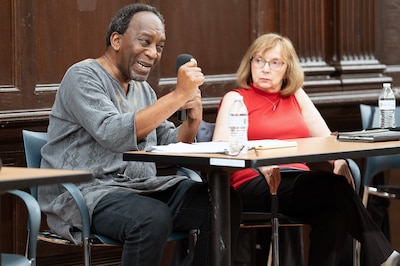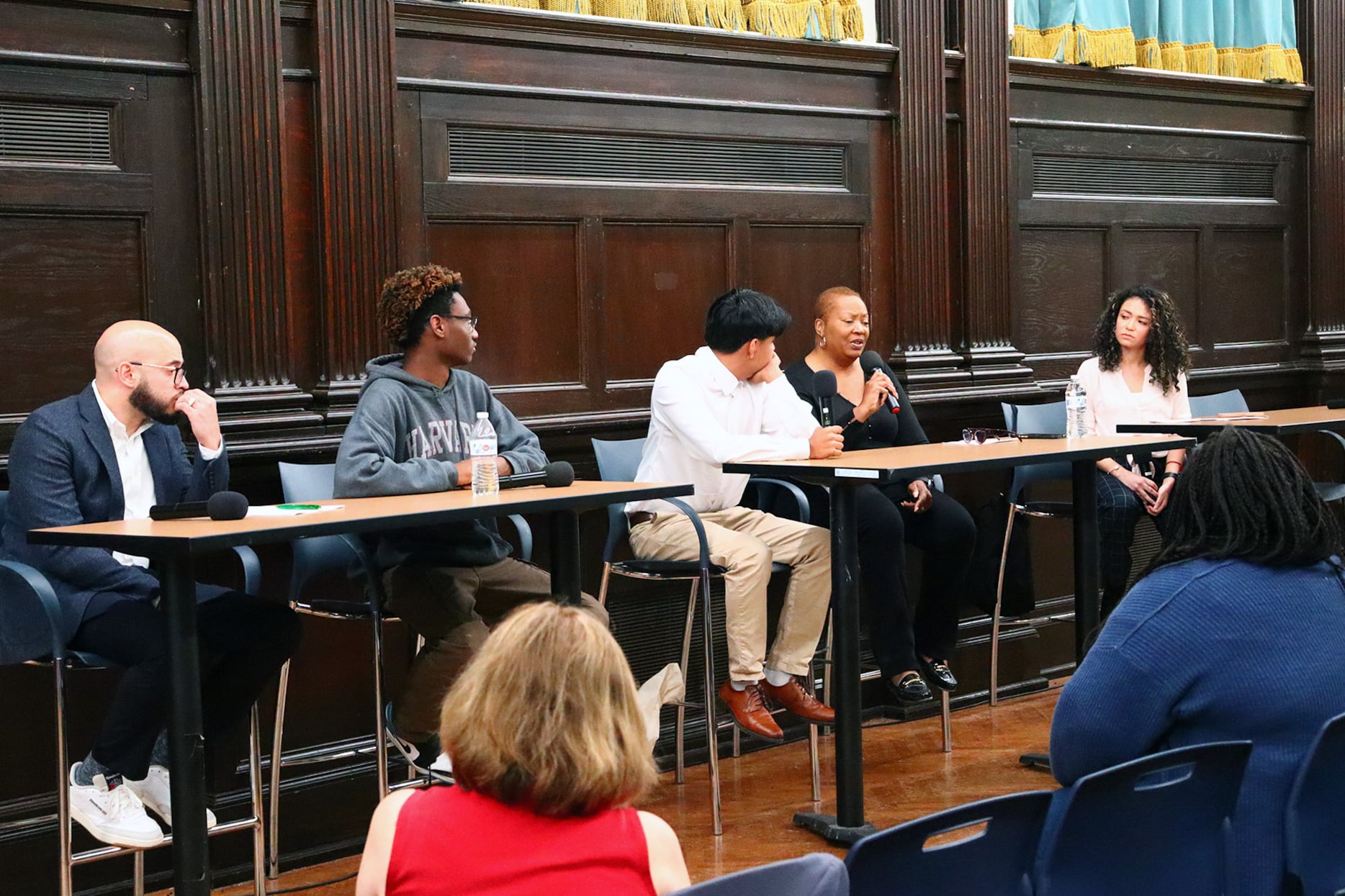Sign up for Chalkbeat Newark’s free newsletter to keep up with the city’s public school system.
Chalkbeat Newark, alongside WNYC and NJ Spotlight News, welcomed community members and students to a panel discussion Thursday on school segregation in New Jersey, an issue spotlighted by a recent state Superior Court opinion in the Latino Action Network’s lawsuit against the state.
New Jersey ranks sixth nationwide in highest levels of school segregation, according to the UCLA Civil Rights Project. Part of Thursday’s panel explored that data and more recent research that draws from state school performance reports to examine the learning environments of segregated schools in the state.
But the larger focus of the panel centered on how the issue affects education in Newark, New Jersey’s largest city, where 90% of students in the public school system are Black or Latino.
Panelist Charles Payne, a Rutgers professor of African American studies and director of the Joseph Cornwall Center for Metropolitan Research, explained how demographic changes at the local level can accelerate segregation in the schools.
“The data looks like once a school becomes 50% nonwhite, it’s going to become 90%. It’s going to move real fast,” said Payne to the audience of about 65 people who gathered at the Newark Public Library’s main branch.
Payne also highlighted the need for added resources in Newark’s schools, so that its students aren’t consigned to “second class citizenship.”
“Segregation makes it easier to cheat children,” Payne said.
Christian Martinez, a graduate of Barringer High School and now a freshman at Kean University, said he was disappointed by his experience in Newark Public Schools because of a lack of attention to buildings and student resources.
“We’ve been handed used, busted up books and told to make the best of it,” Martinez said. “We are absolutely deserving of more.”
Earlier this month, a judge issued a pre-trial opinion in a five-year-old legal battle that New Jersey has failed to remedy the racial segregation evident in numerous school districts throughout the state.
The case was filed by several families and advocates who argued that the racial isolation experienced by thousands of Black and Latino students violates the state constitution, which explicitly bans school segregation.

David Allen, a senior at University High School and a Chalkbeat Student Voices fellow, spoke at Thursday’s forum about his prior experience at the Newark School of Global Studies.
News of various incidents involving racial, religious, and cultural harassment at Global Studies surfaced throughout the year, beginning when he and other students spoke out at a Newark school board meeting last November.
At Global Studies, Allen started a Black student union in an effort to bring a voice to Black students.
“When we’re looking at racism as a system, there’s always someone who needs to have the power. And it’s never the Black students that have the power,” said Allen.
He added:
“It’s an especially cruel thing to be surrounded by people in power who look like you but have no compassion for things you’re going through and the experiences they claim to have lived.”
Yvette Jordan, history teacher and chairperson of the Newark Education Workers Caucus, and Mark Comesañas, executive director of My Brother’s Keeper Newark, spoke about the challenges they’ve faced as educators in Newark when confronted with issues of racism and racial segregation.
Jordan and Comesañas underscored the importance of creating space for Black students in the classroom, both through support and curriculum.
“Overhauling the curriculum is vital, mandating certain things in African American history for all students,” said Jordan.
Comesañas echoed Jordan’s comments, highlighting how crucial it is for all students to read Black authors.
During the question-and-answer period, audience members raised a variety of concerns, including allocation of funding.
“We need to change the language that we don’t have the resources,” said Denise Cole, a community advocate who attended the forum. “We are not poor. We are disadvantaged, but not poor.”
Watch a recording of last night’s event livestream below.
Samantha Lauten is a fall reporting intern for Chalkbeat Newark covering public education in the city. Get in touch with Samantha at slauten@chalkbeat.org or reach the bureau newsroom at newark.tips@chalkbeat.org.





